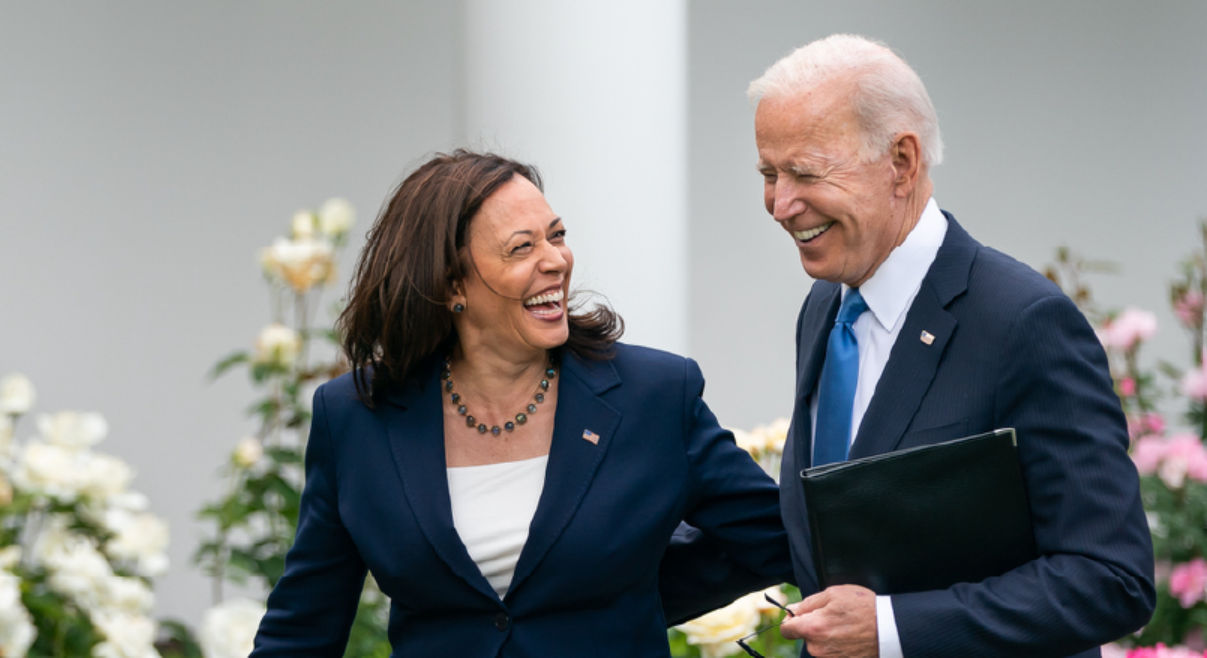Kamala Harris has solidified her narrow polling lead over Donald Trump on key economic issues following last week’s highly watched presidential debate, according to a newly released FT-Michigan Ross poll.
The poll, which focuses on voters’ perceptions of economic stewardship, found Harris leading Trump by two percentage points—44 per cent to 42 per cent—on the question of who is more trusted to manage the US economy.
Last month, the two candidates were statistically tied on this issue, with Harris holding only a one-point advantage at 42 per cent to 41 per cent.
Notably, Harris fared even better among those who watched the debate, which attracted around 67 million viewers.
Among those respondents, 48 per cent expressed more trust in Harris to handle the economy, compared with 42 per cent for Trump.
For voters who did not watch the debate, Trump held a 6-point advantage at 41 per cent to Harris’s 35 per cent.
This demonstrates the impact the debate had on shifting voter perceptions of Harris’s economic capabilities.
Harris’s economic trust surpasses Biden’s
Since the Financial Times and University of Michigan Ross School of Business began tracking voters’ trust on economic issues nearly a year ago, Joe Biden has consistently trailed Trump.
However, Harris has managed to outperform the sitting president in the latest poll, with 44 per cent of respondents placing their trust in her over Trump on economic matters—a significant eight-point improvement over Biden’s polling on the same question.
Harris’s improved standing suggests she is successfully distancing herself from the more unpopular aspects of Biden’s administration, even without introducing a distinct economic plan of her own.
According to Erik Gordon, a professor at Michigan’s Ross School of Business, this shift in economic trust is crucial. “Voters also think [Harris] represents ‘people just like them’ better,” Gordon noted.
“That’s important, given the tendency of people to vote for the candidate they think will do the most for them.”
In fact, the poll showed that 47 per cent of respondents felt Harris better represented “people like you,” compared to only 37 per cent who felt the same about Trump.
Harris gains ground on the cost of living and middle-class issues
In addition to her overall lead on economic trust, Harris was seen as better able to address rising costs, with 44 per cent of voters trusting her to lower the costs of everyday necessities like food and fuel, compared with 43 per cent for Trump.
Similarly, she led Trump by a 44 to 42 per cent margin on helping the unemployed find jobs.
On middle-class issues, Harris enjoyed an even more pronounced advantage. Nearly half of voters, or 49 per cent, believed Harris better represented the interests of the middle class, compared to 36 per cent who believed Trump did.
The vice-president also led Trump on other key constituencies, with 48 per cent of voters saying she better represented small businesses and 45 per cent believing she was the stronger advocate for union members.
Trump, however, held a commanding lead when it came to representing the interests of large corporations (64 per cent to 20 per cent) and the wealthy (67 per cent to 19 per cent).
Despite these strengths, there remains a lingering challenge for Harris: 40 per cent of voters said they believed they would be financially better off under a second Trump term, compared to 35 per cent who believed they would be better off under Harris.
Impact of the Federal Reserve’s expected rate cuts
The poll results come just days before the Federal Reserve is expected to announce a cut in interest rates.
This is seen as a signal that the central bank is confident inflation has been brought under control and that borrowing costs can be lowered.
Harris’s lead on the economy in the aftermath of the debate may be bolstered by the timing of these developments, as voters look to the candidates for clear direction on managing inflation and fostering economic growth.
The poll indicates that Harris may be benefiting from a broader shift in voter sentiment.
As inflation concerns ease and the Federal Reserve prepares to cut rates, voters appear to be responding more positively to her message of economic recovery.
This contrasts with the struggles Biden faced in convincing voters that they were faring well financially under his administration.
Challenges remain for Harris despite gains
Despite her improved standing, Harris still faces hurdles. While she has shown an ability to build trust on economic issues, Republicans have been quick to criticize her for lacking a coherent economic vision.
This was highlighted during a recent interview in Philadelphia, where Harris struggled to articulate specific plans to tackle the cost of living, drawing sharp criticism from GOP commentators.
Additionally, while Harris’s polling on the economy has improved, Trump continues to enjoy strong support from voters on financial matters.
His ability to tap into economic anxiety and his claim that voters would be better off under his presidency remain powerful arguments for his campaign.
Harris must also contend with the broader challenge of distancing herself from an unpopular incumbent.
According to the poll, only 17 per cent of voters believe they are financially better off under Biden, compared with 53 per cent who say they are worse off.
These negative perceptions of Biden’s economic performance could still weigh down Harris as she seeks to make her case to voters.
For the Democrats, Harris’s ability to command trust on economic issues—traditionally a Republican stronghold—could prove decisive.
However, Harris’s advantage is far from secure. The race remains tight, and while her debate performance may have given her a boost, both campaigns are expected to ramp up their messaging in the final stretch.
As voters continue to weigh their economic futures, Harris will need to maintain her momentum to hold off Trump in the coming weeks.
The post Harris consolidates lead over Trump in economic trust after debate, poll shows appeared first on Invezz

